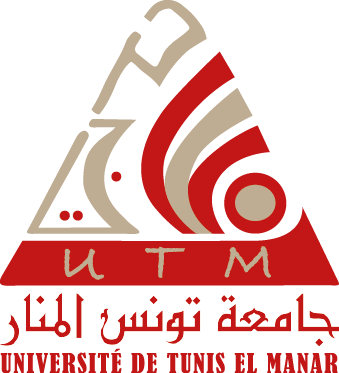Réunion stratégique annuelle du Consortium Africain sur les leishmanioses, tenue du 24 au 27 Février 2025 en Tunisie
L’Institut Pasteur de Tunis (IPT) a accueilli les leaders du consortium africain sur les leishmanioses (ALC) pour tenir sa réunion stratégique annuelle, du 24 au 27 février 2024, en ses lieux et à l’hotel Royal Azur, Hammamet.

La réunion menée par les Professeurs Ikram Guizani (IPT) et Ayoade Oduola (University of Ibadan Research Foundation, Nigeria), respectivement Directrice et co-Directeur de l’ALC, a inclus les leaders de différentes institutions partenaires (Pr. Seydou Doumbia (University Clinical Research Center, USTTB, Mali), Drs. Elisa Sicuri et Nuria Casamitjana (Barcelona Instituto de Salud Global, Espagne), Dr. Endalamaw Gadisa (Armauer Hansen Research Institute, Ethiopie), Dr. Kamal Ben Allel (Institut Pasteur d’Algérie) ainsi que les membres du secrétariat bilingue du consortium et son équipe de gestion (Pr. Ali Bouattour, Dr. Monia Ardhaoui, Dr. Mourad Barhoumi, Dr. Amira Jaballah, Mme Chema Zoghlami, Mme Oumaima Khlifi) de l’Institut Pasteur de Tunis.

Elle avait pour programme la planification stratégique des activités pour atteindre les délivrables ciblés en 2025 en alignement avec les attentes du programme DELTAS Africa. La réunion tenue à Hammamet sous forme d’ateliers thématiques de remue-méninges a abordé les objectifs stratégiques à atteindre et la finalisation des plans de mise en oeuvre initiés en 2024 : les programmes innovants du consortium ; la plateforme et le programme de formation de l’ALC ; la finalisation du recrutement compétitif des boursiers du programme; la planification des réunions de son conseil scientifique (International Scientific Advisory Board, ISAB), et des groupes de travail thématiques et de réflexion stratégique (Thematic working groups et International Leishmaniases Working Group, ILWG, respectivement). Les stratégies et les résultats seront présentés lors de la conférence annuelle de l’ALC qui se tiendra en fin 2025.
À l'Institut Pasteur de Tunis, le groupe de leaders a concentré son intérêt sur les programmes de recherche menés à l'Institut Pasteur de Tunis relatifs aux thèmes du consortium, grâce à une visite guidée des différents projets du laboratoire d'Épidémiologie moléculaire et pathologie expérimentale (MEEP ; hôte de l'ALC), incluant la participation à la soutenance HDR de Dr. Insaf Bel Hadj Ali. Cette dernière a mis en avant la capacité d'autonomisation de l'IPT en matière de développement de diagnostics pour les maladies infectieuses. Puis, une visite a été organisée dans une sélection de locaux (Laboratoire P3, Laboratoire mobile, plateformes vaccin ARNm et IPTomics) et de programmes de recherche : DeVaLeish ; Vision ; CIC- Histoire naturelle des Leishmanioses ; Biomolecules, Venins et Applications théranostiques. Cette visite a mis en lumière les expertises et divers intérêts de recherche dans le domaine des maladies infectieuses et des maladies négligées de l’Institut Pasteur de Tunis.
Le Consortium Africain sur les Leishmanioses est un partenariat pan-Africain financé par l’initiative DELTAS Africa II qui est gérée par la Science for Africa Foundation avec le soutien financier du Wellcome Trust et du UK Foreign Commonwealth & Development Office (FCDO).
Annual strategic meeting of the African Leishmaniases Consortium, held February 24-27, 2025 in Tunisia
The Institut Pasteur de Tunis welcomed the leaders of the African Leishmaniases Consortium (ALC) to hold its annual strategic meeting, from February 24 to 27, 2024, at its premises and at the Hotel Royal Azur, Hammamet.

The meeting led by Professors Ikram Guizani (Institut Pasteur de Tunis) and Ayoade Oduola (University of Ibadan Research Foundation, Nigeria), Director and Co-Director, ALC respectively, included leaders from various partner institutions (Pr. Seydou Doumbia (University Clinical Research Center, USTTB, Mali), Drs. Elisa Sicuri and Nuria Casamitjana (Barcelona Instituto de Salud Global, Spain), Dr. Endalamaw Gadisa (Armauer Hansen Research Institute, Ethiopia), Drs. Kamal Ben Allel (Institut Pasteur d' Algérie, Algeria) and the members of the bilingual secretariat and management team of ALC (Pr. Ali Bouattour, Dr. Monia Ardhaoui, Dr. Mourad Barhoumi, Dr. Amira Jaballah, Mme Chema Zoghlami, Mme Oumaima Khlifi) from the Institut Pasteur de Tunis.

The meeting focused on the strategic planning of activities to achieve the deliverables targeted for 2025, in line with the expectations of the DELTAS Africa program. The meeting, held in Hammamet, under the form of thematic brainstorming workshops, addressed the strategic objectives to be achieved and the finalization of the implementation plans initiated in 2024: the consortium's innovative programs; the inception of ALC training platform and curricula; the finalization of the competitive recruitment of ALC fellows; the meetings of its International Scientific Advisory Board (ISAB), Thematic Working Groups and Think Tank (International Leishmaniases Working Group (ILWG)). The strategies and results will be presented at the ALC annual conference at the end of 2025.
At the Institut Pasteur de Tunis, the group of leaders focused on the research programs carried out at the Institut Pasteur de Tunis relating to the consortium's themes, thanks to a guided tour of the various projects of the Molecular Epidemiology and Experimental Pathology laboratory (MEEP; host of the ALC), including participation in the HDR defense of Dr. Insaf Bel Hadj Ali. Dr. Bel Hadj Ali highlighted the IPT's capacity for autonomy in developing infectious disease diagnostics. This was followed by a tour of selected facilities (Laboratoire P3, Mobile Laboratory, mRNA vaccine and IPTomics platforms) and research programs: DeVaLeish; Vision; CIC - Natural History of Leishmaniasis; Biomolecules, Venoms and Theranostic Applications. The visit highlighted the expertise and diverse research interests in the field of infectious and neglected diseases at the Institut Pasteur de Tunis.
The African Leishmaniases Consortium is a pan-African partnership funded by the DELTAS Africa II initiative, which is managed by the Science for Africa Foundation with financial support from the Welcome Trust and the UK Foreign Commonwealth & Development Office (FCDO).




